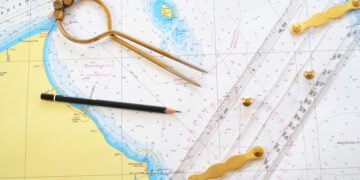Datum Electronics announced a new Knowledge Transfer Partnership (KTP) with Strathclyde University, aiming to develop an innovative technology for marine engine condition monitoring. The main goal of this collaboration is to bring together the industry and academia, to address the problem of optimization of operations and compliance.
Today, emission regulations are becoming more stricter than ever – keeping in mind the approaching 2020 sulphur cap – and the monitoring of vessel performance is becoming mandatory; Thus, the industry is in need of digitalization that will assist the optimization and compliance.
Thus, Datum Electronics develop a Decision Support System (DSS) which will be able to scan and investigate marine engines. This system evaluates the dynamic torque from engine output shafts; can analyze and asses individual cylinder actions and changes in the engine dynamics related to potential failure modes.
[smlsubform prepend=”GET THE SAFETY4SEA IN YOUR INBOX!” showname=false emailtxt=”” emailholder=”Enter your email address” showsubmit=true submittxt=”Submit” jsthanks=false thankyou=”Thank you for subscribing to our mailing list”]
The system will help the crew onboard to optimize the maintenance operations, while also engine activity can be adjusted for efficient fuel savings.
At present, Datum Electronics has agreed to four trial schemes with ship operators who work in various fields of the market industry, such as Cruise Ships, Bulk Carriers and Workboats.
The company with a focus on developing accurate and easy-to-install torque and shaft power measurement systems to improve fuel efficiency and reduce operational costs, is looking to develop informed studies in order to display the system’s capability and potentiality.
The KTP associate who works exclusively to address the partnership’s goal, Konstantinos Tsitsilonis, stated that
I am extremely pleased to have the opportunity to work for the University of Strathclyde in an academic context, that currently demands an immediate application to the industry by Datum Electronics.
The team is also working with Dr. Gerasimos Theotokatos from Strathclyde University, focusing on the development and empirical analysis of marine and ship energy systems. The partnership also aims to reduce the environmental footprint and enhance safety in the marine industry.



































































